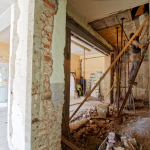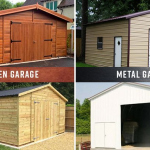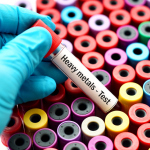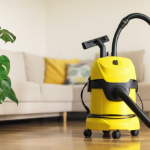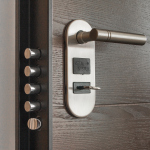Heat Pump Installation: 7 Things to Consider Before Making a Switch
Share

Heat pumps are economical in making your space warm since it draws heat from your surroundings. However, it uses electricity to function.
According to Dale Blundell, “An Air Source Heat Pump (ASHP) will typically produce around 3kW thermal energy for every 1kW of electrical energy consumed.”
But what is a heat pump, anyway?
It is an electricity-powered heating and cooling system that moves heat from one place to another. A heat pump can also have a backup gas or electric heating system that will activate when it’s freezing outside.
Thus, a heat pump is an efficient way to even out the temperature in your house while reducing your carbon footprint.
Things to Consider Before Installing a Heat Pump
Because of its perceived efficiency and cost-effectiveness, installing a heat pump can be an excellent choice for improved heating and comfort. However, there are some things that you need to consider:
Efficiency
A heat pump’s efficiency is measured by the Coefficient of Performance (CoP). This shows how efficient your ground or air source system can heat your home in the best possible conditions.
For better understanding, CoP is the unit of heat that your heat pump can produce for every unit of electricity that you put in.
So considering what Blundell said, this means that an ASHP has a CoP of 3 or 300% efficiency. This is way better than an electric heater with 100% efficiency (1 unit of electricity produces 1 unit of heat) or a gas broiler which has 90% efficiency.
Keep in mind, though, that 300% efficiency is the average measurement among heat pumps. So make sure that you can find something that has a higher CoP.
Initial Outlay
The issue with installing a heat pump is that the initial outlay can cost a hefty sum.
In New Zealand alone, the outlay in a living area can cost at NZD 2,300. This will depend on your heat pump unit; it’s capacity and installation specifics. The installation may even cause a degree of landscaping, which could disrupt your home’s curb appeal.
That said, it is important that you take the time to compute how much an efficient heat pump unit will cost. Add to that the initial outlay, as well as the possible landscaping work that you will need to do afterward.
On the bright side, though, the cost could be worth it since your heating system can help you save in energy costs over time.
Installation Process
Sure, installing your heat pump could mean a disrupted yard, but it does not have to be a rigorous process. It can be done in less than a day with the help of trained technicians.
As posted on AirconSpecialists.co.nz, “The installment of your heat pump is one of the most important parts of the purchasing process. If your heat pump is not installed correctly by trained technicians, your new heat pump may not last and will not be covered under any manufacturer’s warranties.”
When looking for a technician who can help install your heat pump, make sure that they are compliant and with accreditation. It is also important that they will give you a rundown of what they will do, so you will know what to expect and how long the installation process will be.
Versatility
What makes heat pump efficiency is the fact that it can heat and cool your home with just a flick of a switch. Thus, it can provide you year-round comfort.
It is similar to a typical air conditioner, wherein the heat pump relies on the flow of the refrigerant to transfer heat from one place to another. But unlike an AC, heat pumps have a reversing valve. The valve will reverse the flow of the refrigerant within your unit, which allows for making your space warm.
All you need to do is flip the switch between heating mode and cooling mode depending on the weather or your comfort needs.
Cost-effectiveness
If you have a gas furnace and decided to switch to a heat pump, that could mean a decrease in the gas bill but an increase in electricity bills.
On the other hand, having a gas or oil heating system would require an electrical system upgrade for the heat pump’s electrical load. This could mean a high initial outlay cost.
That said, it is best to consider heat pump installation as an investment — weight in which could give the best ROI.
As mentioned earlier, your heat pump can help you save money that can outweigh the initial outlay cost over time. And even if it leads to higher electricity bills, compare the amount you have to pay for utility from when you used to have a gas furnace.
Less Maintenance
Since having a heat pump means you can make your home either cool or warm, then you may no longer need an AC and a separate heating unit. Thus, you no longer have to maintain two different HVAC systems.
Repairs and replacement can be expensive, more so if you have two separate units. But with a heat pump, you will only have to maintain a single system.
In addition, heat pumps require less maintenance. Even better is that you can do some of the maintenance yourself. These are simple things like checking the air filters, keeping the outdoor coil clean, and making sure that the unit is clear of any debris.
Meanwhile, you will need a professional technician to check your heat pump at least once a year.
Air Quality
Another benefit of having a heat pump is that it can clean the air in your home.
The air that the system produces is filtered. Thus, you do not have to worry about dust, dirt, pollen, or any airborne allergens. This makes the system ideal if there are people in your house who suffers from asthma or allergies. Not to mention that heat pumps do not create smoke or fumes.
On the other hand, a gas heater needs oxygen in order for the gas to burn and release heat. This is the reason rooms with gas heaters tend to be stuffy and has condensation on windows.
Heat pumps just transfer heat from one place to another. Thus, you can create a healthy environment with the right temperature within your home.
Aside from the price and the manufacturer, there are other things that you need to consider when shopping for a heat pump. This includes how much you can save on electric bills for the entire lifetime of the unit. After all, you have to make sure that every money you spend on buying and installing the heat pump is worth it.


